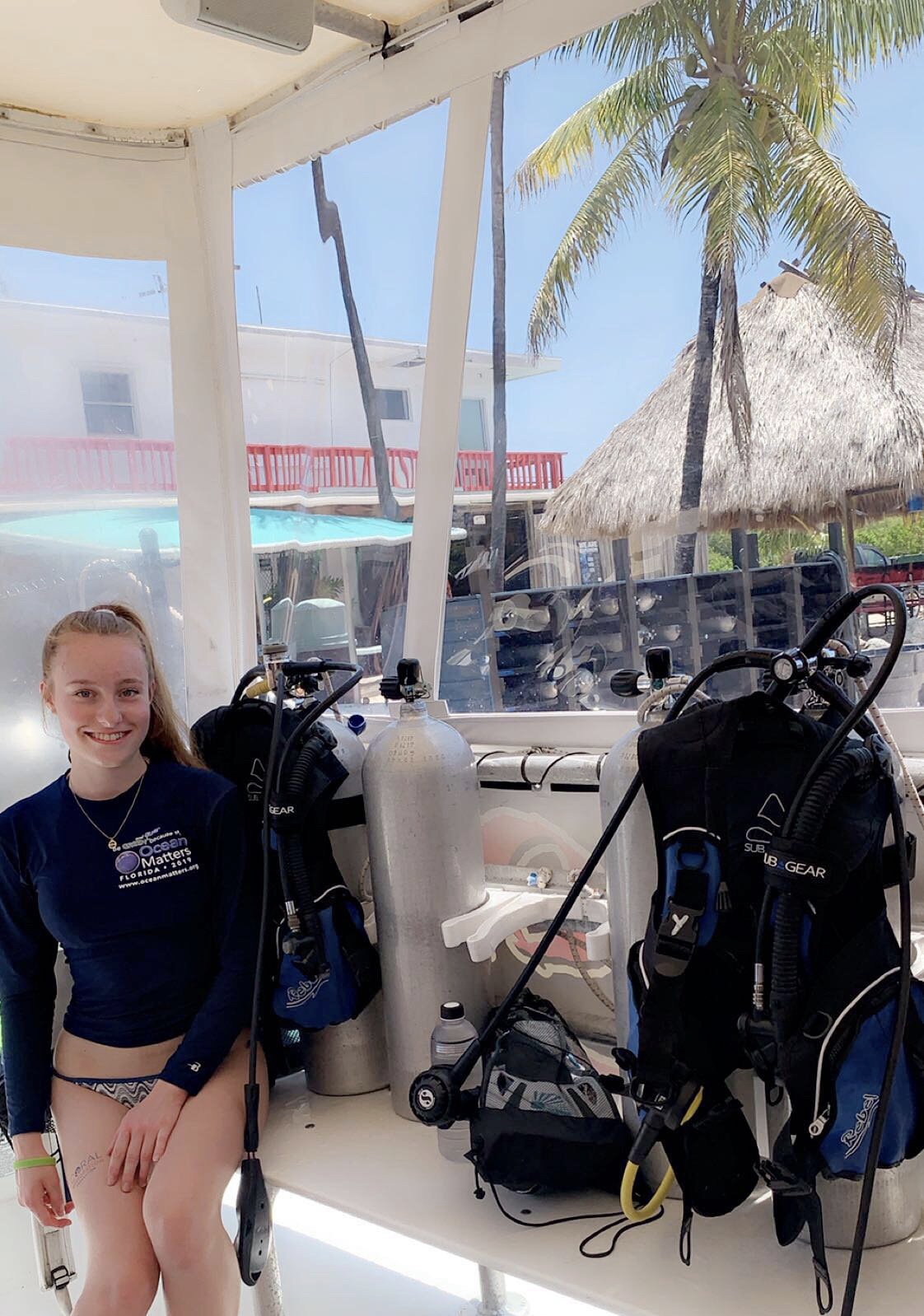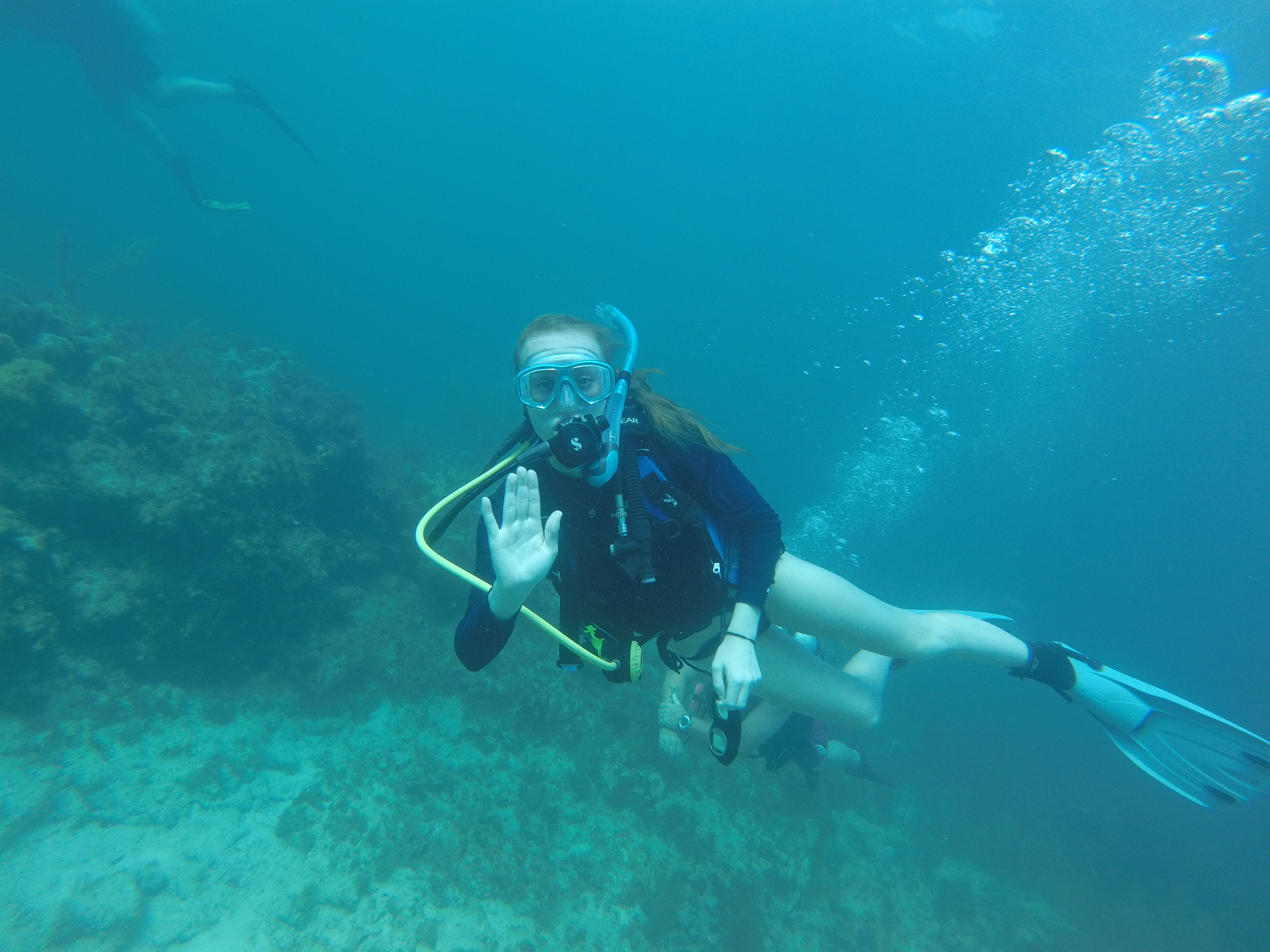
 What have you been up to since attending the Ocean Matters program?
What have you been up to since attending the Ocean Matters program?
In 2019 I attended the Ocean Matters Marine Ecology Expedition in Florida and made some of the best memories I’ve ever made in my life. Since then, I’ve started studying a degree in Marine Biology at the University of Plymouth in Britain’s Ocean City.
What did you receive from your involvement in Ocean Matters that will stay with you moving forward?
One of the main takeaways I gained from my experience with Ocean Matters was the power of teamwork. Being surrounded by people who shared the same passion for the ocean showed me just how powerful and impactful our actions can be when we come together and inspire each other. The ocean connects all of us and together we can save the ocean!
What do you wish everyone knew about the ocean or could experience in the ocean?
I want people to know that we should not take the ocean for granted. For centuries humankind has regarded the vastness of our oceans as an inexhaustible source of food, a useful conduit for transporting goods and a convenient dumping ground for waste – too immense in size to be susceptible to our environmental negligence. But human irresponsibility is pushing our oceans (and the life-support services they provide) to their limits. Many people underestimate the importance of the ocean, however, the ocean is the heart of the planet. It covers over two-thirds of the Earth’s surface and produces 70% of the oxygen we breathe. It is also home to the greatest abundance of life on our planet, and provides us with food, medicine, jobs and a means of transportation. These are just a few of the many reasons why the ocean is so important. Without it, we cannot survive.
In your opinion, what’s the biggest threat to the world’s oceans and what is something we do about it?
In my opinion, the biggest threat to the ocean is climate change. Since the industrial revolution, we have been extensively burning huge amounts of fossil fuels, which is increasing the concentration of atmospheric carbon dioxide by 35 billion tonnes each year. This means that more carbon dioxide is being absorbed by the ocean. This is having a huge impact on our global oceans as it is making them warmer and more acidic, which is having a massive negative impact on marine life. In order to decelerate climate change, we must reduce our carbon footprints by making smarter choices about what we eat (cutting down on red meats and switching to a more plant-based diet) and how we travel (using public transport, switching to renewable energy sources etc.)
How has your unique perspective helped inform your passion for the ocean?
I fell in love with the beauty of the ocean at a young age and I’ve always had a deep connection with it ever since. Growing up, I grew a strong passion for the ocean through watching documentaries and reading books about the ocean and marine life, as well as through my own personal experiences such as snorkelling and scuba diving. However, as I grew old enough to see and understand the damage and threats to the ocean, I grew an even stronger passion to save it. One of the best things I’ve ever done in my life was complete a coral restoration project through Ocean Matters in Key Largo with the Coral Restoration Foundation. Here I helped restore coral reefs in areas that had been affected by coral bleaching by planting Elk Horn coral that had been successfully grown in coral nurseries. Ever since then I’ve grown a strong passion for coral, which are so important for the health of the world’s oceans.
